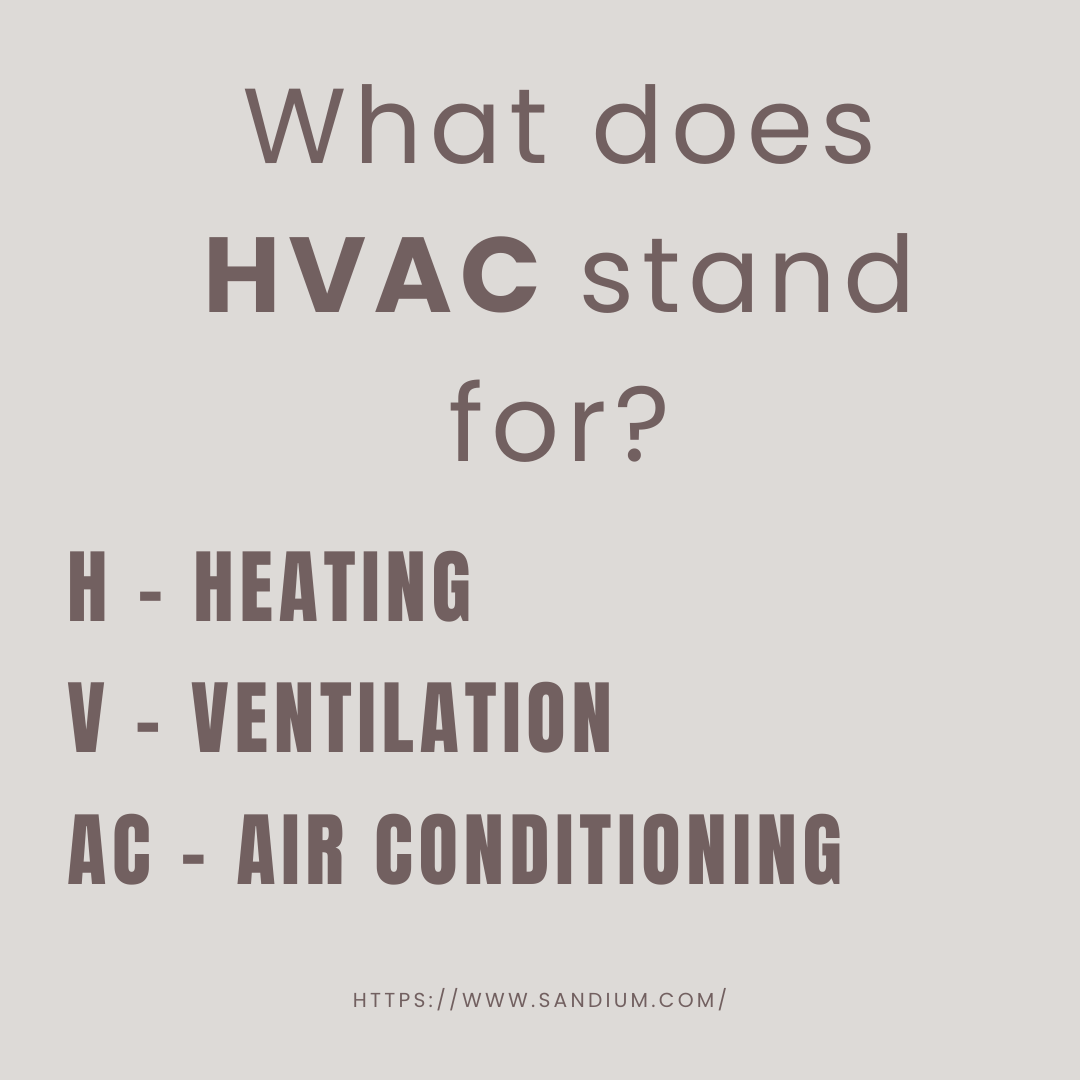Introduction to HVAC
When it comes to maintaining comfort in our homes and workplaces, the term HVAC frequently pops up. But what exactly does HVAC stand for? HVAC is an acronym for Heating, Ventilation, and Air Conditioning. This system plays a crucial role in ensuring that indoor environments remain comfortable and healthy throughout the year, regardless of the weather outside. HVAC systems are responsible for regulating temperature, humidity, and air quality, making them an essential component of modern living. Whether it's a scorching summer day or a chilly winter night, HVAC systems work tirelessly behind the scenes to keep us cozy and safe.
The Components of HVAC
Understanding HVAC requires a closer look at its three main components: heating, ventilation, and air conditioning. The heating component is responsible for warming up indoor spaces during cold weather. This is typically achieved through furnaces, boilers, or heat pumps, which convert energy into heat. Ventilation, on the other hand, involves the exchange of indoor and outdoor air to improve air quality by removing pollutants, odors, and excess moisture. This can be achieved through natural or mechanical means. Lastly, the air conditioning component cools and dehumidifies indoor air during hot weather, ensuring comfort and preventing heat-related issues.
How HVAC Systems Work
An HVAC system operates through a network of interconnected components that work together to regulate indoor climate. The system's central unit, often located in a basement, attic, or a dedicated utility room, houses the main components such as the furnace, air conditioner, and ventilation fans. Air ducts are used to distribute heated or cooled air throughout the building. Thermostats, strategically placed in different areas, allow users to set desired temperatures, prompting the HVAC system to adjust accordingly. Advanced systems may include smart thermostats and zoning capabilities, offering enhanced control and energy efficiency.
Importance of HVAC Maintenance
Regular maintenance of HVAC systems is crucial to ensure their efficiency and longevity. Neglecting maintenance can lead to increased energy consumption, higher utility bills, and even system breakdowns. Routine tasks such as changing air filters, cleaning ducts, and inspecting components can significantly improve system performance. Professional inspections and servicing should be conducted annually to identify and address potential issues before they escalate. Proper maintenance not only extends the lifespan of the system but also enhances indoor air quality and comfort, making it a worthwhile investment.
Energy Efficiency and HVAC
Energy efficiency is a significant consideration when it comes to HVAC systems. As energy costs rise and environmental concerns grow, optimizing energy use has become a priority for many. Modern HVAC systems are designed with energy efficiency in mind, incorporating features such as variable-speed motors, high-efficiency compressors, and advanced refrigerants. Homeowners and businesses can further improve efficiency by sealing air leaks, insulating ductwork, and using programmable thermostats. Investing in an energy-efficient HVAC system not only reduces environmental impact but also results in significant cost savings over time.
Choosing the Right HVAC System
Selecting the appropriate HVAC system for your home or business involves several considerations. Factors such as climate, building size, and specific heating and cooling needs play a crucial role in determining the best system. Consulting with HVAC professionals can provide valuable insights and recommendations tailored to your requirements. Additionally, understanding SEER (Seasonal Energy Efficiency Ratio) and AFUE (Annual Fuel Utilization Efficiency) ratings can help in evaluating system efficiency. It's essential to choose a system that balances performance, energy efficiency, and cost to ensure optimal comfort and savings.
Common HVAC Problems and Solutions
Like any mechanical system, HVAC systems can encounter issues over time. Some common problems include inadequate heating or cooling, unusual noises, and poor air quality. Often, these issues stem from clogged filters, refrigerant leaks, or faulty components. Troubleshooting and addressing these problems promptly can prevent further damage and costly repairs. Simple solutions such as replacing air filters, checking thermostat settings, and ensuring proper ventilation can resolve many common issues. However, for more complex problems, it's advisable to seek professional assistance to diagnose and fix the root cause effectively.
The Future of HVAC Technology
The HVAC industry continues to evolve, driven by advancements in technology and a growing emphasis on sustainability. Innovations such as smart thermostats, IoT integration, and geothermal heating are transforming how we manage indoor climate. Smart HVAC systems can learn user preferences, optimize energy use, and even detect maintenance needs autonomously. Additionally, the push for eco-friendly solutions has led to the development of systems that utilize renewable energy sources and environmentally friendly refrigerants. As technology progresses, HVAC systems are poised to become more efficient, cost-effective, and environmentally conscious.
HVAC and Indoor Air Quality
Indoor air quality is a critical aspect of HVAC systems, impacting health and well-being. Poor air quality can lead to respiratory issues, allergies, and other health concerns. HVAC systems play a vital role in filtering and circulating air, removing contaminants, and maintaining adequate humidity levels. To enhance indoor air quality, it's essential to use high-quality air filters, regularly clean ducts and vents, and ensure proper ventilation. Incorporating air purifiers and humidity control devices can further improve air quality, creating a healthier and more comfortable living environment.
Conclusion
In summary, HVAC systems are indispensable in providing comfort and ensuring a healthy indoor environment. Understanding what HVAC stands for—Heating, Ventilation, and Air Conditioning—gives us insight into its multifaceted role in our daily lives. From regulating temperature and humidity to improving air quality, HVAC systems are essential for modern living. By prioritizing maintenance, energy efficiency, and proper system selection, we can maximize the benefits of HVAC systems while minimizing environmental impact. As technology continues to advance, the future of HVAC promises enhanced performance, sustainability, and comfort for all.
Article Recommendations
- Samantha Fish Net Worth Career Success Achievements And More
- How Tall Is Conor Mcgregor A Complete Guide To His Height And More
- Erica Michelle Levy Life Career And The Woman Behind The Spotlight


